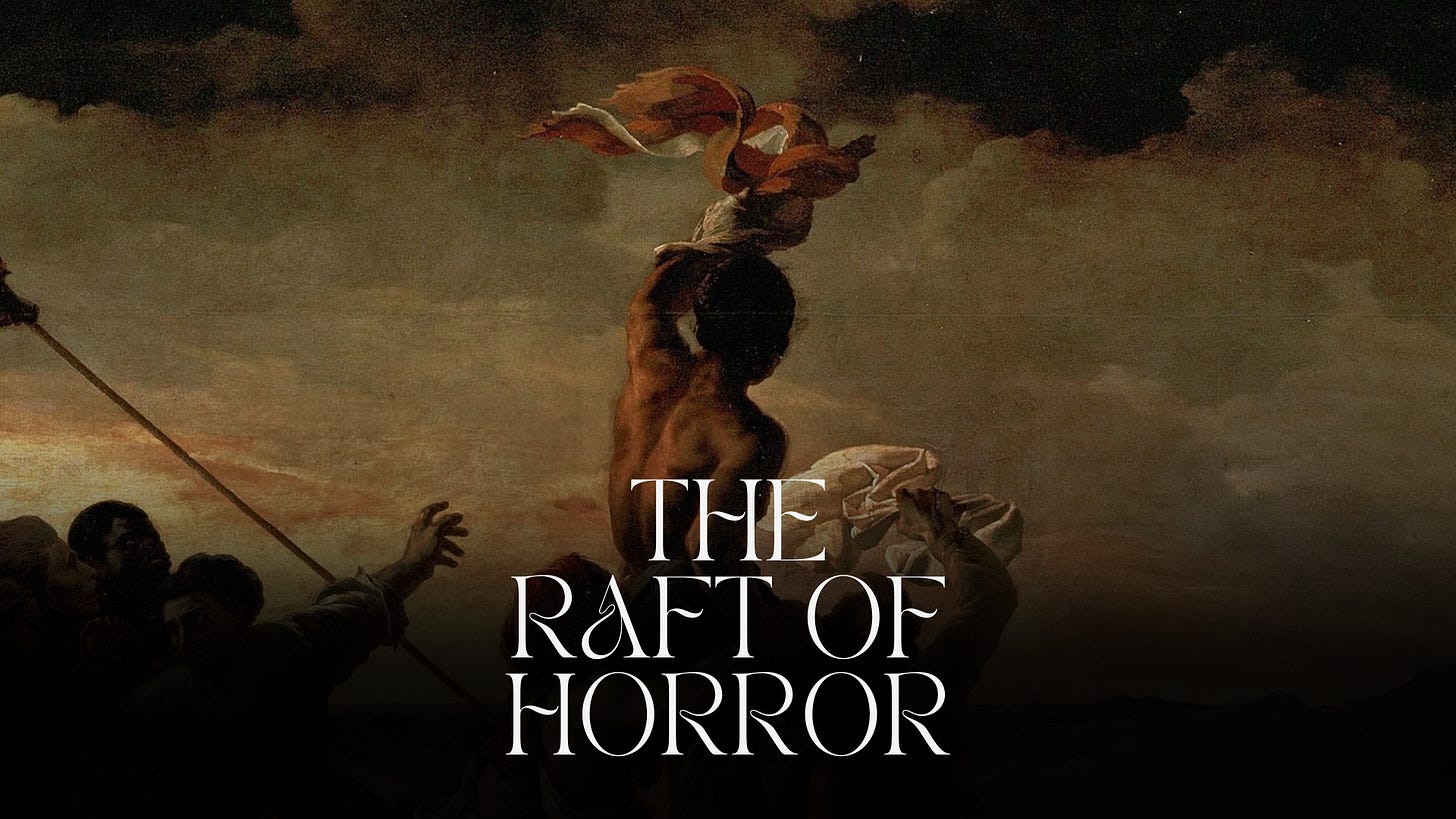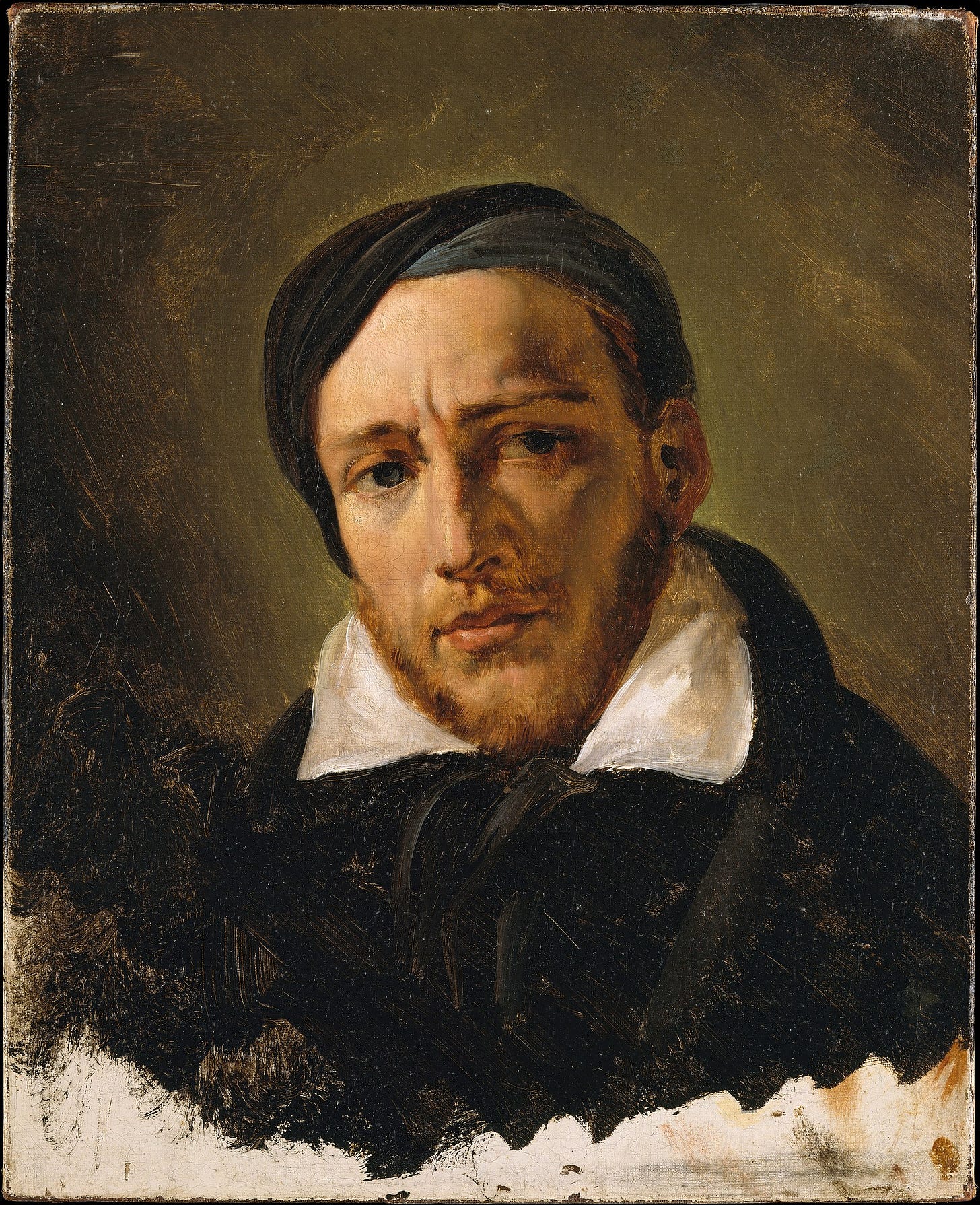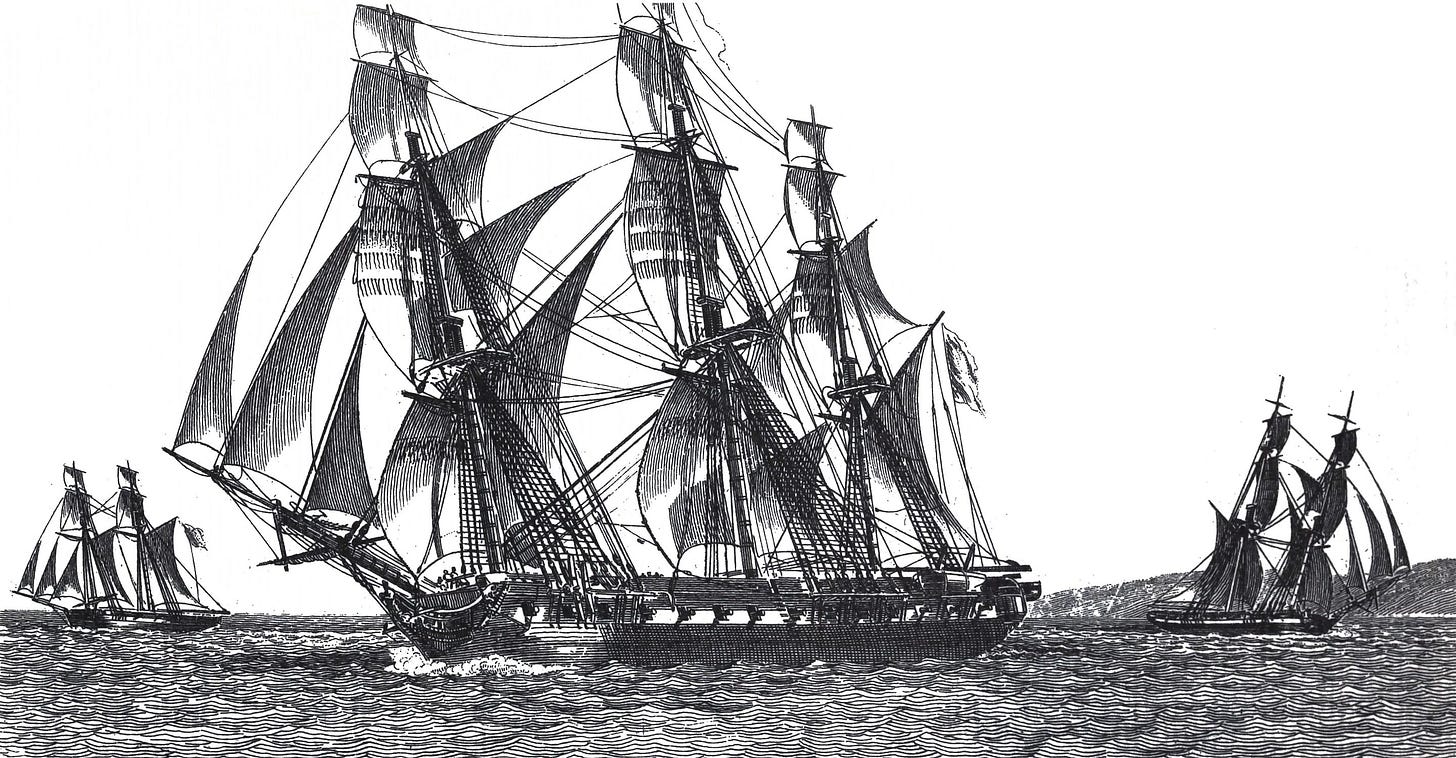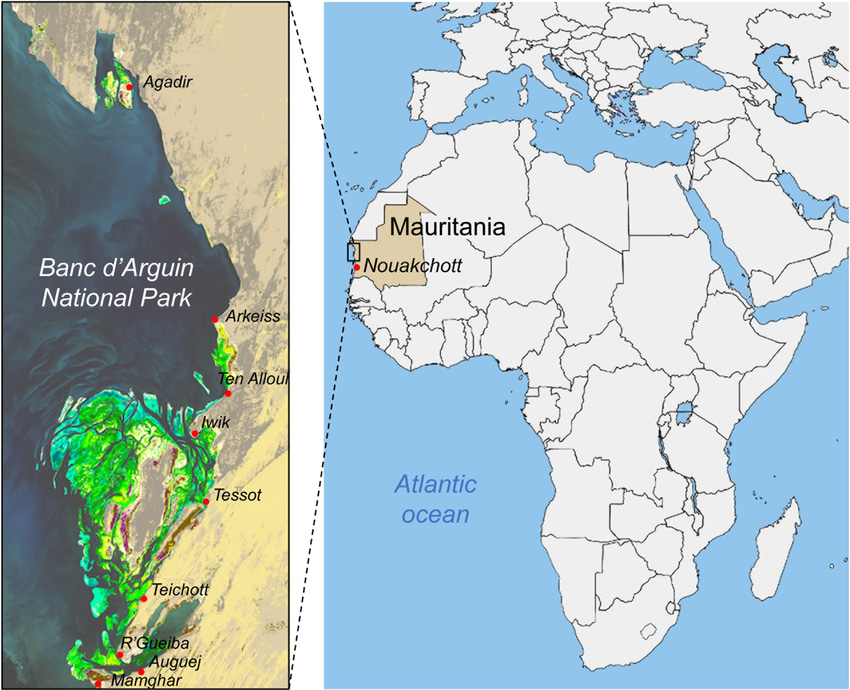The hidden secrets of the Raft of Horror 🏴☠️
147 souls abandoned on a raft. What followed defied all imagination but inspired one of art's greatest masterpieces. The untold story of how horror became beauty in Géricault's hands.
Paris, in the depths of winter 1818. Théodore Géricault walks through the frozen streets, wrapped in his black woollen overcoat. At twenty-seven, he has imposed upon himself for weeks an exceptional monastic discipline that has led him to shave his head completely to avoid any temptation of worldly life. By day, he shuts himself away in his studio, venturing out only in the evening, consumed by an obsession that demands absolute concentration. A project he keeps secret.
He climbs the dark staircase of the building on rue Saint-Jacques to the third floor. Three sharp knocks on the door.
A man opens, in his thirties, features hollowed by insomnia. He recognises the painter. Shows him in without a word. The cramped room smells of cold coffee and burnt-down candles. Leprous walls, rickety table, mismatched straw chairs.
"Monsieur Savigny? I am Théodore Géricault. I should like you to tell me what truly happened."
The man nods. Henri Savigny, surgeon. One of the few survivors of a tragedy that continues to poison France two years after the events.
"Sit down. It is a long story."
Géricault takes out his leather notebook. Savigny pours himself a glass of brandy.
"It all begins on 17th June 1816. We set sail from the île d'Aix for a mission to Senegal. Four ships under the command of the frigate Méduse. We are transporting the new governor of the colony, Colonel Schmaltz, his family and nearly four hundred passengers. The official objective is to retake possession of our trading posts that the English are returning to us."
The surgeon takes a sip.
"But the captain of our frigate, Hugues Duroy de Chaumareys, fifty-three years old, had not sailed since 1790. More than a quarter of a century without commanding a ship and yet, it was he who led the expedition."
"Why him?"
"Political favouritism. Chaumareys was a royalist émigré. The Restoration rewarded its faithful supporters. Competence mattered little. Only loyalty to the throne counted."
Savigny leans towards the painter. His voice drops a tone.
"This man led us straight to disaster."
"Tell me about the crossing."
"The first days pass normally. But Chaumareys makes his first error. He takes the head of the convoy, distances the other ships when orders specify sailing grouped together. He wants to arrive first at Saint-Louis, to make a good impression."
Savigny pours the coffee he has prepared into two chipped bowls.
"Worse still, he delegates navigation to a passenger. A certain Richefort who claims to be a former sailor. In reality, utterly incompetent. But this man flatters the captain's vanity. Confirms his decisions. The truly experienced officers, they dare to contradict him. So Chaumareys prefers to listen to the flatterer."
The account continues. Géricault notes every detail. The errors accumulate. On 29th June, a fire breaks out in the lower deck through negligence. Extinguished just in time. On 1st July, traditional ceremony of crossing the tropic. General drinking spree aboard. In the evening, fatal error. Chaumareys mistakes a bank of clouds on the horizon for Cap Blanc, essential landmark for correcting course.
"That night, the Echo, the corvette still accompanying us, multiplies alarm signals. Her captain has understood that we are on the wrong course. But the watch officer of the Méduse does not even deem it useful to wake Chaumareys."
Savigny puts down his bowl.
"On the morning of 2nd July, we sail alone. Completely isolated. And the signs of danger multiply. The sea becomes greenish. Seaweed floats everywhere. Sand remains in suspension. The fishing is abnormally abundant. My fellow officers grow anxious. Ask to take soundings to know the depth. Chaumareys refuses. Trusts his Richefort."
The surgeon stands up, walks to the window. Paris stretches beneath a leaden sky.
"Three fifteen. Perfectly clear weather. High tide. The boatswain casts the lead. First result: eighteen fathoms. Thirty-three metres of depth. A few minutes later, new sounding. Only six fathoms. Eleven metres."
He turns back to Géricault.
"Then we attempt an emergency manoeuvre. Too late. The frigate touches bottom once. Then a second time. The shock throws us all to the ground. A final sounding gives five metres sixty. The Méduse runs violently aground on the Arguin Bank."





